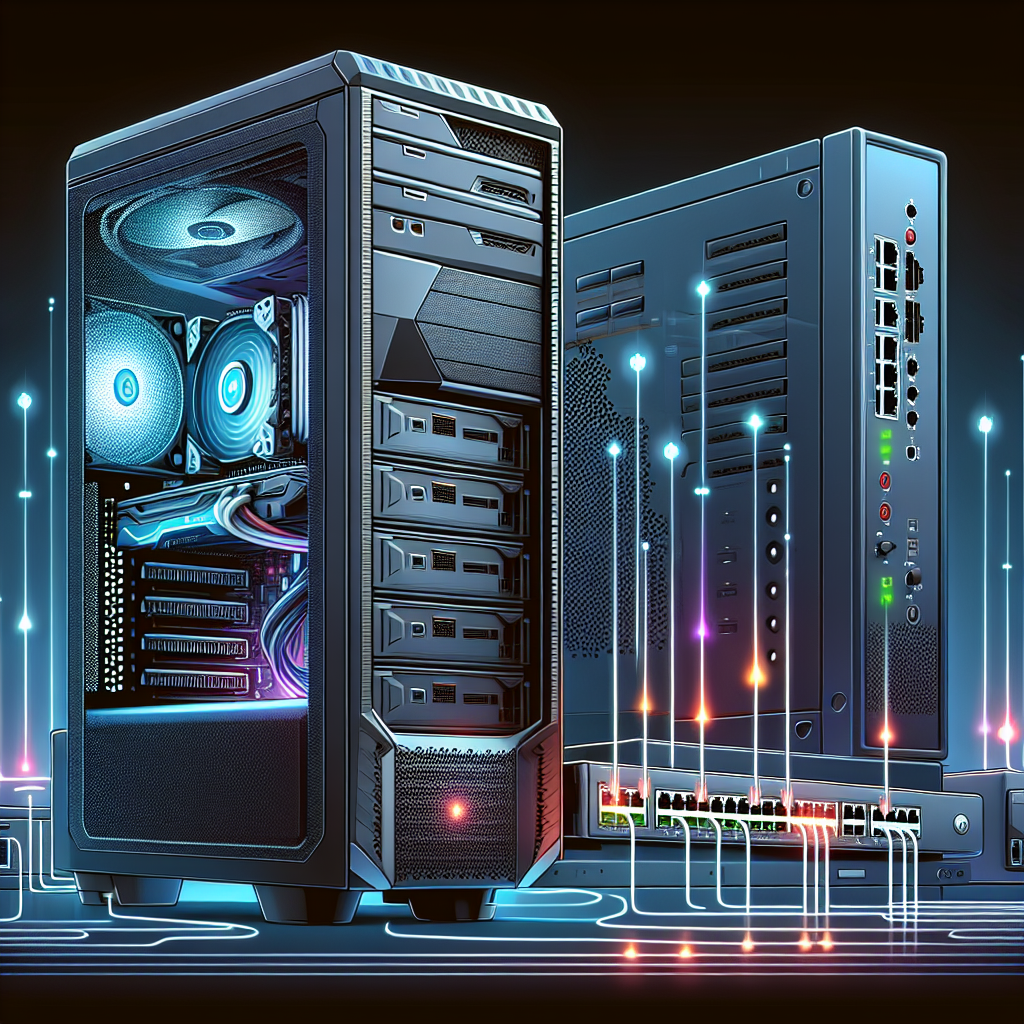In recent years, the demand for high-performance gaming has driven many enthusiasts and professionals to seek every edge possible to enhance their gaming experience. One such edge is the incorporation of enterprise-grade networking hardware in gaming PCs. But why are some gaming PCs built with enterprise-grade networking hardware? This article delves into the factors that make this integration advantageous, exploring the realms of speed, reliability, and security that define a superior gaming setup.
The Importance of Networking in Gaming
Gaming, especially online gaming, heavily relies on a stable and swift network connection. The three pillars that networking hardware impacts in the gaming experience are:
- Latency: The delay between an action and its corresponding response.
- Bandwidth: The amount of data that can be transferred at any given time.
- Reliability: The consistency of the network connection over time.
Comparison: Consumer vs. Enterprise-Grade Networking Hardware
To understand the advantages of enterprise-level networking hardware, let’s compare it with consumer-grade options:
| Feature | Consumer-Grade | Enterprise-Grade |
|---|---|---|
| Speed | Up to 1Gbps | Up to 10Gbps+ |
| Latency | Higher latency | Lower latency |
| Reliability | Moderate | High |
| Security | Basic encryption | Advanced encryption and firewall |
| Customization | Limited | Extensive |
| Cost | Low | High |
Speed: The Crucial Factor
Speed is crucial for gaming performance. Enterprise-grade networking hardware is built to deliver higher speeds than consumer-grade options. While consumer networking hardware often maxes out at 1Gbps, enterprise solutions can deliver speeds of 10Gbps or more. This drastic improvement is particularly beneficial for gamers who stream their gameplay or participate in competitive esports, where every millisecond counts.
Lower Latency: The Competitive Edge
Latency, or ping, measures the delay between a user’s action and the game server’s response. High latency can result in lag, which is detrimental to any gaming experience. Enterprise-grade hardware minimizes latency, ensuring smoother gameplay and giving players a competitive edge. Gamers in competitive scenarios where reaction times are critical will find this especially beneficial.
Reliability: Consistent Performance
Enterprise equipment is designed for 24/7 uptime, ensuring that network failures are minimized. With higher reliability, gamers can enjoy uninterrupted sessions, which is particularly important during long gaming marathons or critical matches. Consumer-grade hardware might be sufficient for everyday use, but it can fall short during peak demand times.
Enhanced Security
Security is another area where enterprise-grade hardware excels. Advanced features such as better encryption, intrusion detection systems, and robust firewalls offer a higher level of security compared to consumer-grade gear. Gamers who stream or participate in online tournaments need this level of security to protect against potential threats and ensure their gaming sessions remain uninterrupted.
Customization and Control
Enterprise-grade networking hardware offers extensive customization options. This includes advanced Quality of Service (QoS) settings, VLAN support, and more. These features allow gamers to prioritize gaming traffic over other network activities, ensuring that their connection remains optimal for gaming. Consumer-grade hardware typically has limited customization options, which can be a drawback for serious gamers.
Cost Considerations
While the benefits of enterprise-grade networking hardware are clear, one must also consider the cost. These devices are significantly more expensive than their consumer counterparts. However, for many gamers, particularly those involved in streaming or professional esports, the investment is justified by the enhanced performance and reliability.
Case Studies and Real-World Examples
Several professional esports teams and gaming streamers have adopted enterprise-grade networking equipment to stay ahead of the competition. For instance, Team Liquid, one of the top esports organizations, equips their training facilities with enterprise networking solutions to ensure their players experience the best possible performance.
Future Trends
The gaming industry continues to evolve, and with it, so does the technology surrounding it. Emerging trends such as cloud gaming and VR/AR gaming will put even more strain on network performance. As these technologies become mainstream, the benefits of enterprise-grade networking hardware will become even more pronounced, making it a worthwhile consideration for any serious gamer.
Conclusion
In conclusion, the integration of enterprise-grade networking hardware in gaming PCs enhances speed, reduces latency, boosts reliability, and provides superior security and customization. While the cost is higher, the benefits it brings to serious and professional gamers make it a compelling choice. As the gaming landscape continues to advance, equipping oneself with top-tier networking hardware might just be the key to staying ahead in the game.

